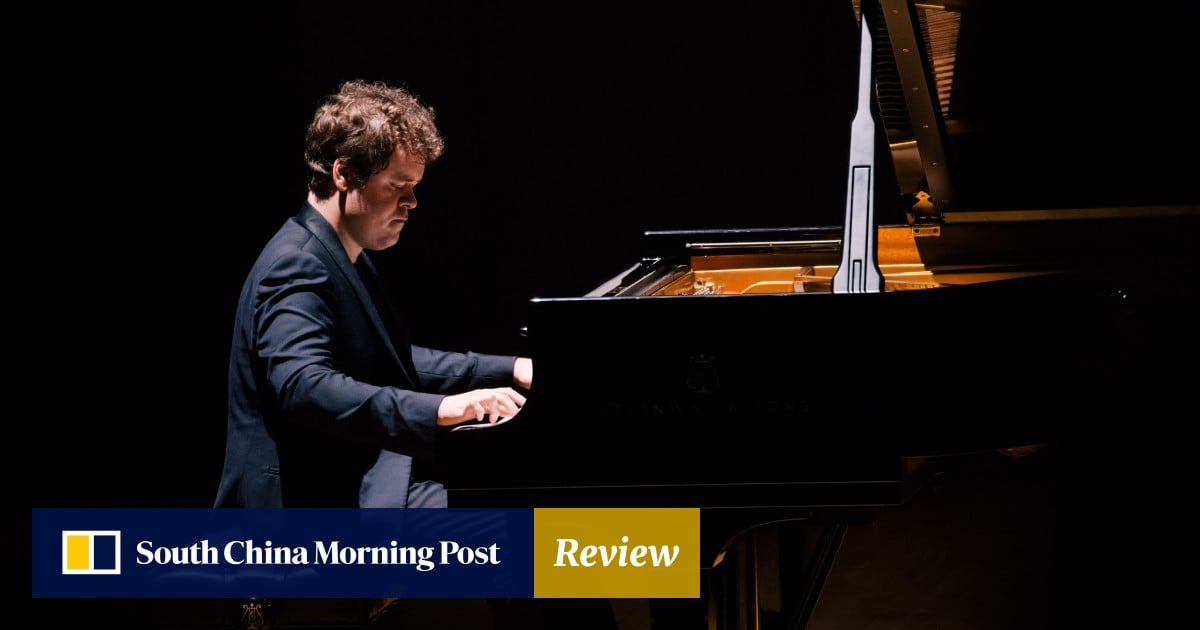When a recital programme includes two fiendishly demanding piano sonatas, you can expect the soloist to both have the technical chops and the musical stamina to pull it off.
Chopin spared the usual clichéd imagery of swaying Venetian gondolas in his Barcarolle in F sharp major, literally a “rowing boat song”, which he composed in ill health, just some three years before his death.
Grosvenor nonetheless conjured much warmth and wistfulness in the early undulations, and as soon as the writing increased in restlessness and floridity, the Royal Academy of Music graduate showed tremendous skill in spinning intertwining lines of ornamentation as effortlessly as could be and with plenty of bel canto operatic flair to boot.
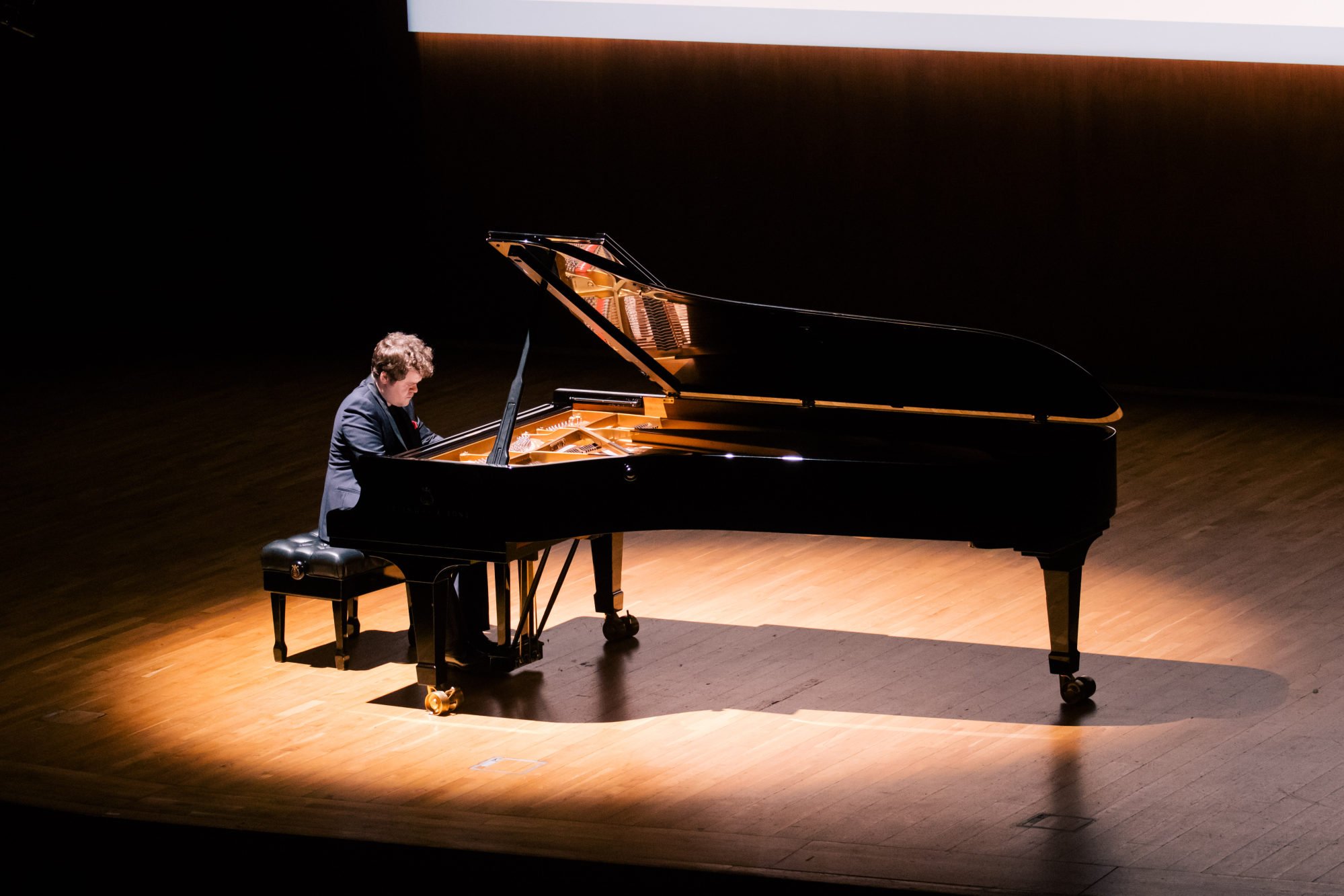
Another hallmark of the 31-year-old pianist’s playing was the consistently thoughtful weighting and release of chords. This was no more evident than in Liszt’s all-encompassing Piano Sonata in B minor, where four movements are rolled into one compact yet highly demanding composition.
In this quasi “fantasia” that is built on its introductory themes, Grosvenor captivated with eerie takes on the early motifs, creating much ominous undertow. His jagged and forceful octave motif was nothing short of chilling and, much like the hammering marcato in the left hand, had emerged from minimalist gestures and an intense focus on each hand.
‘My life in Hong Kong informs how I play’: classical pianist returns for concerts
‘My life in Hong Kong informs how I play’: classical pianist returns for concerts
The Andante sostenuto, arguably the sonata’s centrepiece, proved yet another example of Grosvenor’s skilful economy at the keys and pedals. And the devilish fugato that followed was a tour de force of his technical arsenal.
But each to his own of course. German composer Robert Schumann, to whom Liszt dedicated the sonata, made clear that he disliked it, and his beloved wife Clara even refused to play it, finding it “merely a blind noise!”
Liszt’s Berceuse followed the interval, and although the quasi “lullaby” shares the same key (D flat major) as Chopin’s own Berceuse, the similarities pretty much end there.
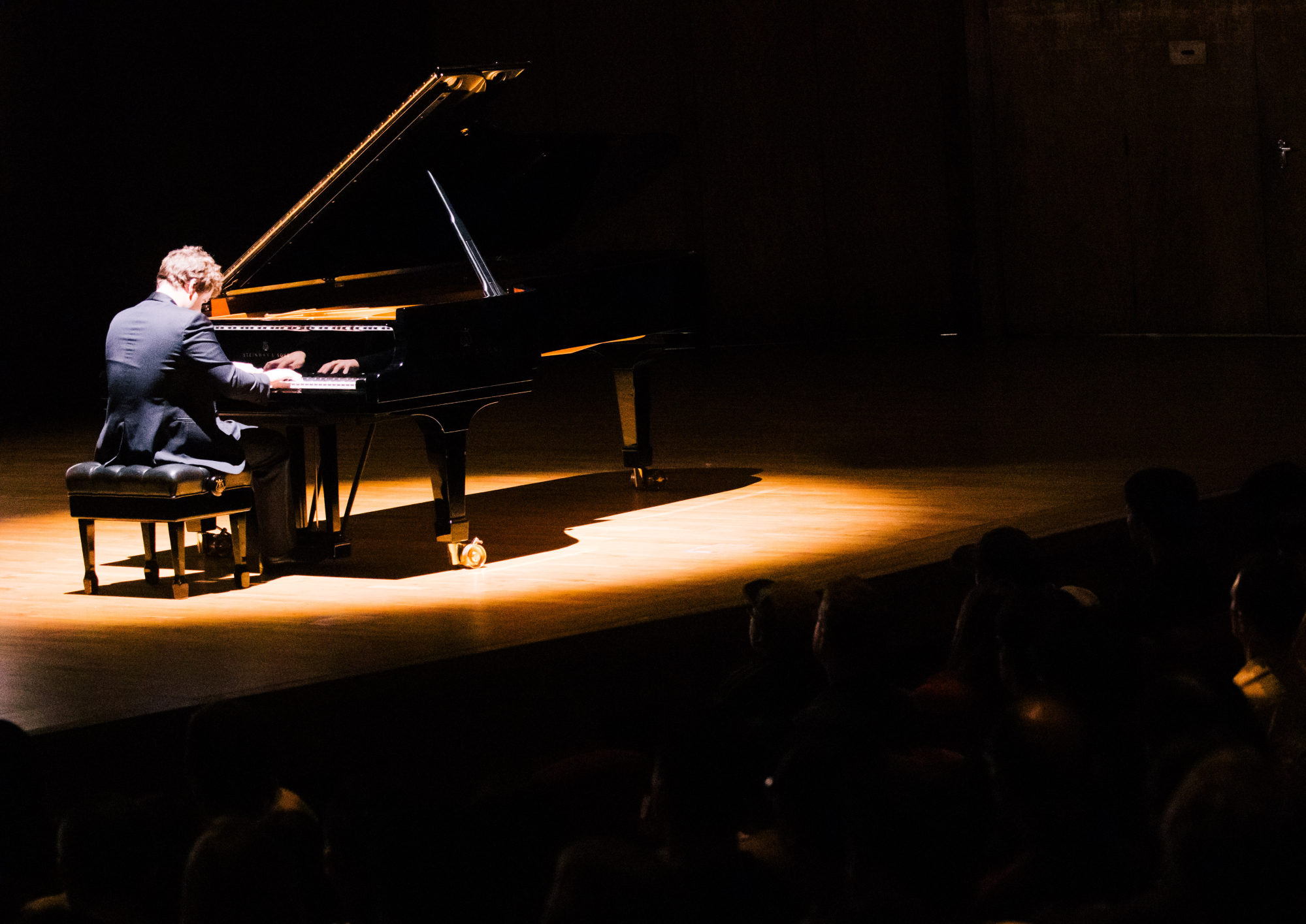
Grosvenor’s hushed moments and extreme tenderness in this, the second version by Liszt from 1863, were enchanting. But soon enough, any remnants of a swaying lullaby gave way to intense drama and passion.
Was it his Chopin that ultimately won over most hearts on Friday evening? Perhaps.
10th Hong Kong Tap Festival an energetic celebration of dance
10th Hong Kong Tap Festival an energetic celebration of dance
There was certainly no mucking about in between works. Barely had the previous round of enthusiastic applause subsided that the young Briton launched straight into Chopin’s major contribution to the sonata literature, the Piano Sonata No. 3.
The Polish composer (as did Liszt) chose the B minor key for his sonata – almost unprecedented in the classical sonata repertoire – presumably to best express darker emotions while bringing out the piano’s sonorities.
If that were indeed the composer’s intent, Grosvenor not only expressed that masterfully but also drew fabulous tone colours in his rendition.
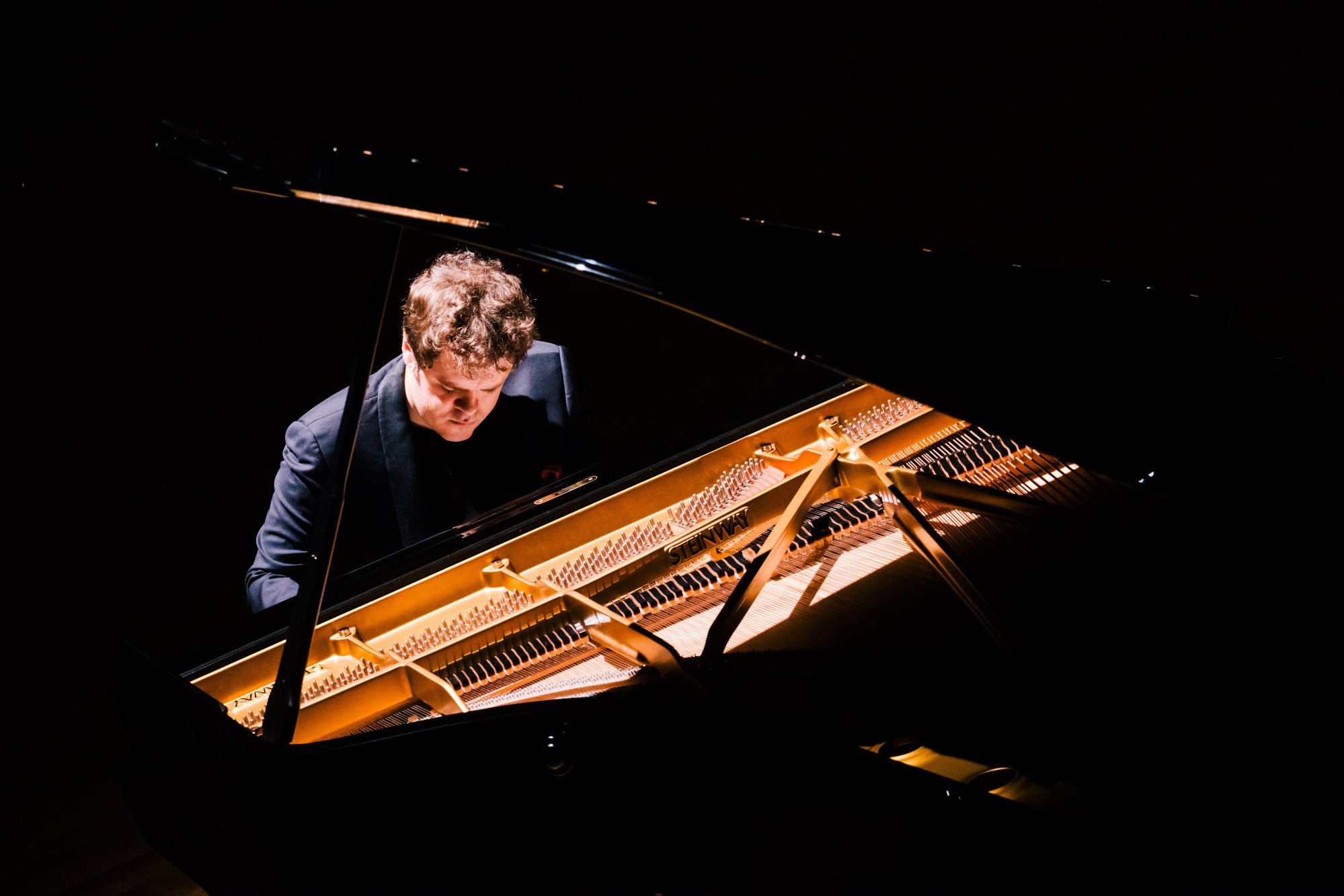
He shaped the Allegro maestoso like a fine work of architecture, building fabulous swells and undulations that were laden with nostalgic sentiment.
Grosvenor’s dexterity was phenomenal in the blink-and-you’ll-miss-it Scherzo: Molto vivace and was contrasted with a finely textured and perfectly paced middle section.
The stormy rhythms that started the Largo may belie the blissful serenity and largely introspective nature of the movement – possibly Chopin’s most profound contribution to the Romantic sonata repertoire – but Grosvenor’s reading was touching and poetic by turns.
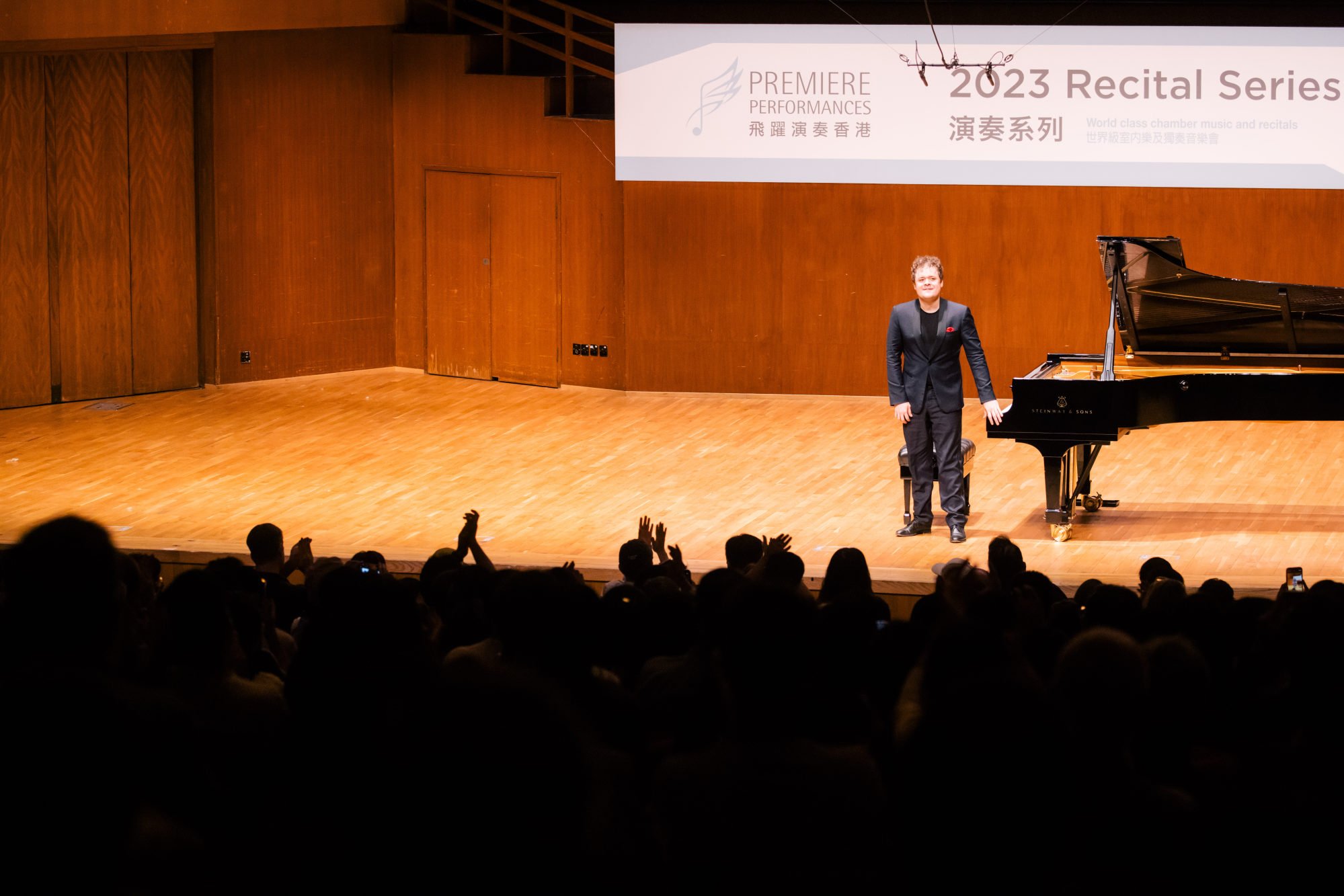
All of his “tricks of the trade” were on full display in the galloping Finale: Presto non tanto, where even highly virtuosic chromatic runs seemed like perfectly natural cascades in Grosvenor’s hands.
Clearly there was more to come, and after each spurt of rapturous applause Grosvenor obliged with yet another encore.
Of the four Mid-Autumn Festival treats that he offered, French composer Maurice Ravel’s Jeux d’eau (Fountains) was especially wonderful, highlighting the pianist’s fluidity as well as his uncanny feeling for impressionistic sensuousness.
“Benjamin Grosvenor Piano Recital – Chopin & Liszt”, Premiere Performances of Hong Kong, Concert Hall, Hong Kong City Hall. Reviewed: September 29, 2023.

